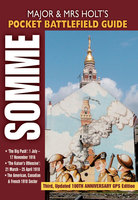Conquerors of the Roman Empire: The Vandals (Paperback)
Imprint: Pen & Sword Military
Pages: 200
Illustrations: 20 illustrations
ISBN: 9781399020848
Published: 9th May 2022
(click here for international delivery rates)
Order within the next 10 hours to get your order processed the next working day!
Need a currency converter? Check XE.com for live rates
| Other formats available | Price |
|---|---|
| Conquerors of the Roman Empire:… Hardback Add to Basket | £19.99 |
| Conquerors of the Roman Empire:… ePub (37.2 MB) Add to Basket | £6.99 |
On 31 December AD 406, a group of German tribes crossed the Rhine, pierced the Roman defensive lines and began a rampage across Roman Gaul, sacking cities such as Metz, Arras and Strasbourg. Foremost amongst them were the Vandals and their search for a new homeland took them on the most remarkable odyssey. The Romans were unable to stop them and their closest allies, the Alans, marching the breadth of Gaul, crossing the Pyrenees and making themselves masters of Spain.
However, this Kingdom of the Vandals and Alans soon came under intense pressure from Rome’s Visigothic allies. In 429, under their new king, Gaiseric, they crossed the straits of Gibraltar to North Africa. They quickly overran this rich Roman province and established a stable kingdom. Taking to the seas they soon dominated the Western Mediterranean and raided Italy, famously sacking Rome itself in 455. Eventually, however, they were utterly conquered by Belisarius in 533 and vanished from history. Simon MacDowall narrates and analyses these events, with particular focus on the evolution of Vandal armies and warfare.
MacDowall has done a good job of producing a coherent account from some often rather difficult sources. The Vandals didn't produce a historian of their own, so their story can only be told using sources written by their enemies - Roman or Barbarian - and of course these don't always agree on events. The result is a useful study of one of the more obscure but important conquerors of the Western Empire.
History of War - John Rickard
Read the complete review here.
For someone, perhaps especially a wargamer, wanting a basic account of Vandal history, the book should do fine.
SlingShot, November-December 2016 - – reviewed by Andreas Johansson
As featured in
VaeVictis, September 2016
In December AD406, a group of German tribes crossed the River Rhine, penetrated the Roman defensive lines and began to rampage across Roman controlled Gaul, sacking cities such as Arras, Metz and Strasbourg. Foremost among the tribes were the Vandals from eastern Gaul, searching for a new homeland. The Romans were unable to stop the Vandals, who with their Alan allies marched across Gaul into Spain where they established a joint kingdom. This kingdom however soon came under intense pressure from Rome’s allies – the Visigoths, being soundly defeated in battle in AD418, so the Alans and Vandals migrated to North Africa, crossing the Straits of Gibraltar in AD429. Here they established a stable and powerful kingdom, as well as taking to the seas and raiding Italy, including Rome itself in AD455. Eventually however they were conquered by the Byzantine general Flavius Belisarius in AD533 and subsequently vanished from history.
Stuart Asquith, Author
The Vandals are, today, a household name synonymous with barbaric destruction, yet they are still little understood. The author follows the migrations of the Vandals, as well as analysing their armies, equipment and tactics, plus those of their opponents. No less than 37 plates – mostly in colour - and 10 monochrome maps support the author’s text, which is rounded off with a chronology, a brief biographical list of the Vandal and Alan kings, similarly the Later Roman emperors, then a glossary, a select bibliography and finally an index.
About Simon MacDowall
Simon MacDowall was born in England but from the age of 10 grew up in Canada. He joined the Canadian army, was commissioned into the Royal Canadian Dragoons and saw active service with the UN in Honduras and Nicuragua and with NATO in Croatia, Bosnia and Kosovo. In 1994 he was the UN spokesman in Sarajevo. He later worked for NATO as a civilian before joining the UK civil service, where he was the Communications Director for several departments, including the MOD and HMRC. In his spare time he is a keen wargamer and military historian, with six previous books to his name.

















